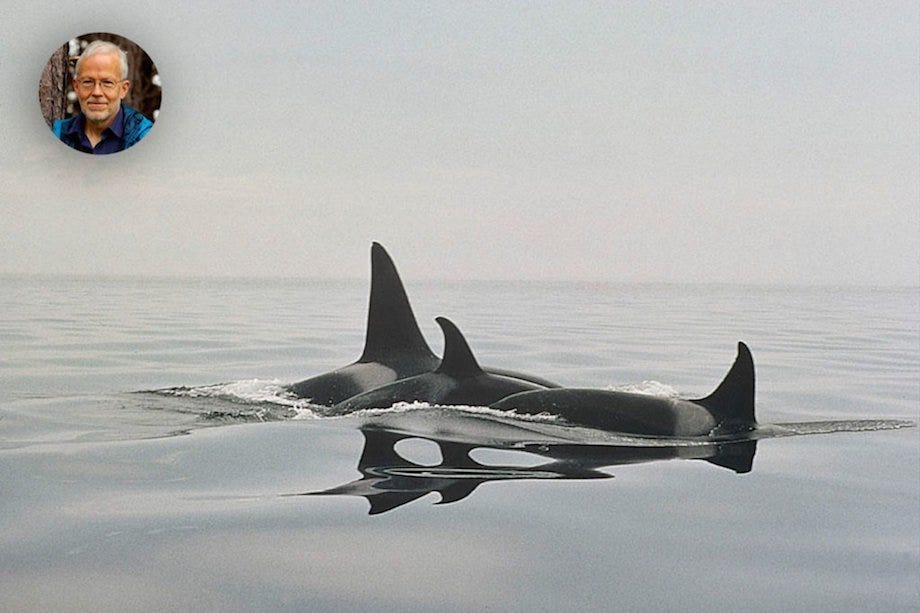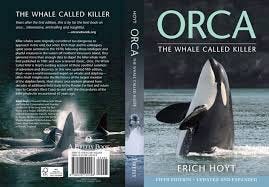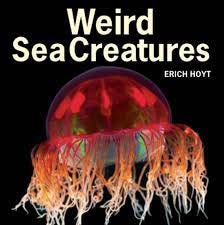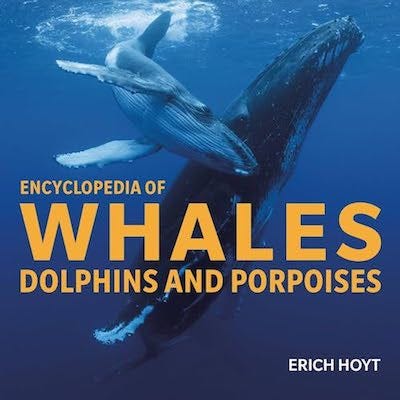He sets the record straight about the 'killer' whales he swam with safely
Now Erich Hoyt has had a boost for his work from King Charles

Until yesterday, I thought my year-end reading had peaked with the horrific stabbing of Capt. James Cook, with a dagger possibly made from a swordfish bill, in Hampton Sides’ bestseller The Wide Wide Sea.
Then my old friend
wrote to say he’d been made an O.B.E., an Officer of the Order of the British Empire, on King Charles’ New Year’s Day honors list. He earned that award for his books and services to marine conservation.You didn’t have to be a deckhand on the HMS Pinafore to want to sing, “Oh, joy, oh rapture unforeseen!”
I set aside Sides’ book and began emailing Erich tips on how to bow properly when he meets the king, a bit of trivia I’d picked up while dancing at balls in my ancestors’ Scotland and elsewhere. A tip, men: Don’t whip your head so far forward His Majesty sees only your bald spot.
Erich, I reasoned, could use help preparing for his encounter with Charles III, and not just because he’s an Ohio-born dual citizen of the U.S. and Canada, though he lives in Bridport, England. He may also be one of the most soft-spoken and unpretentious authors ever to earn an O.B.E., a man I’ve never heard raise his voice even when he had four young children underfoot in a house bursting with books and music.
For decades, he’s been working to protect whales and dolphins and writing wonderful books about those and other creatures, not honing the skills he’d need at an investiture ceremony.
Swimming with orcas in the wild
I discovered his singular gift for nature writing when I read his first book, Orca: The Whale Called Killer. With an exceptional blend of literary flair and scientific rigor, Erich melds memoir and journalism in an unforgettable account of his seven summers of studying (and sometimes swimming with) orcas in Vancouver.
Orca arrived with a blurb by a Nobel Prize-winning biologist, and it debunked a myth that hurts whales: Orcas are the serial killers of the seas, all of them potential Unabombers with a dorsal fin. In fact, there’s never been a documented case of a someone killed by an orca in its natural habitat.
Erich’s reputation has only grown since the publication of Orca, which has become modern classic of nature writing. His achievements include helping to set up a science-based system to identify and map whale, dolphin, and other marine mammal habitats worldwide.
Since 2016 Erich been working with more than 300 scientists to document those areas and produce the Important Marine Mammal Areas (IMMA) spatial tool, used by governments, businesses, scholars, and conservation groups. He’s also raised money for that project and others focused on whale and dolphin conservation in remote parts of the world.
For much of that time, Erich has held dual roles as a research fellow with Whale and Dolphin Conservation and co-chair of the IUCN Marine Mammal Protected Areas Task Force.
More than 25 books and hundreds of papers
Amid all of it, he’s written more than 25 books for adults and children and hundreds of scientific papers about oceans and some of their most majestic—and misunderstood—creatures. Adolescents may especially enjoy his Weird Sea Creatures, a lavishly illustrated guide to odd dwellers of the depths, and marine mammal completists his Encyclopedia of Whales, Dolphins, and Porpoises.
His literary honors include a Bush science journalism fellowship at MIT, two terms as a writer in residence at Thurber House in Columbus, Ohio, and two outstanding general nonfiction book of the year awards from the American Society of Journalists for Creatures of the Deep and Planktonia. He’s also won the Mandy McMath Conservation Award from European Cetacean Society.
Place matters to orcas
Erich has accomplished so much since I’ve known him, I wondered how he’d sum up all of it. So I emailed him to ask why he believed the work mattered. He wrote back:
“When I started spending my summers with killer whales, or orcas, back in the early 1970s, we had no idea of where they went and we just imagined that they had the whole ocean out there and were free to use it. What we learned over the years was that place is important, that whales and dolphins come back to the same places for feeding, breeding and raising their calves, and that we need to identify and protect these special places, their habitats, both for the sake of the animals, but also for the health of the ocean.”
What does that mean in practical terms for whales and dolphins? Erich says:
“It’s not always protection per se that they need but more consideration of their needs in a particular space before humans decide to do something like drill offshore oil wells or build wind turbines or open up an area for intensive fishing. They need a space of their own. But in terms of the main threats, fishing nets and gear which they can get caught in and if the fishing is happening in an intensive way in their habitats — that kills more whales and dolphins than anything else, far more than hunting and pollution and noise.”
As for Hampton Sides’ bestseller, which I’d planned to write about today: A review will appear here soon. And there’s an odd link between that book and Erich’s work.
Capt. Cook inspired the most famous line by Capt. James Kirk of Star Trek. Kirk said he wanted the Starship Enterprise "to boldly go where no man has gone before.” Swimming with “killer” whales is pretty bold, too, and unlike Erich, Capt. Kirk will never make a New Year’s Day honors list by King Charles.
Jan Harayda is an award-winning critic and journalist who has been the book columnist for Glamour, the book editor of a large newspaper, and a vice president of the National Book Critics Circle. Orca is among the books reviewed in 100 or fewer words in her “50 Nonfiction Books I Like,” a story for paid subscribers that’s a companion to her “50 Novels I Like.”





I had to, it was there: https://www.youtube.com/watch?v=YF72zXVvwQM